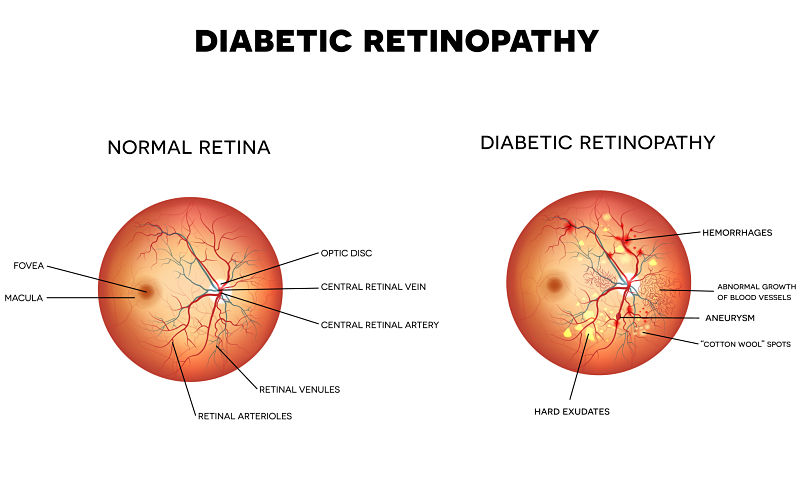There was a time when most diabetics became blind due to a disease called diabetic retinopathy. Today vision is retainable through treatments. Changes in the retina can occur quickly and it is important to have a routine eye exam to treat the retina as soon as possible for any damage before sight is affected.
Without treatment, diabetic retinopathy can progress into macular edema, retinal ischemia, neovascularization, which is the growth of new blood vessels, and neovascular glaucoma.
If you have diabetic retinopathy, the changes to the retina include tiny red dots, which are small retinal hemorrhages, and leakage of serum from the eye. When this happens, it is a sign that the retina is damaged.
If you maintain your health by watching your blood sugar, you can delay and reduce any changes to the retina. Smoking and high blood pressure can cause the progression of the disease.

Injections, such as Avastin, is a medication that will help stop the growth of new blood vessels and can also stop some of the leakage of serum. Other forms of treatment include retinal laser and vitrectomy surgery. This surgery is performed when the blood vessels are growing and scar tissue is forming and needs to be removed. The surgery can also treat retinal detachments and neovascular glaucoma.
If you have diabetes and have not had a routine eye exam in a while, please contact The Regional Eye Center today and request an appointment. Diabetic Retinopathy usually does not have symptoms associated with its progression and can only be detected through a routine eye exam.













